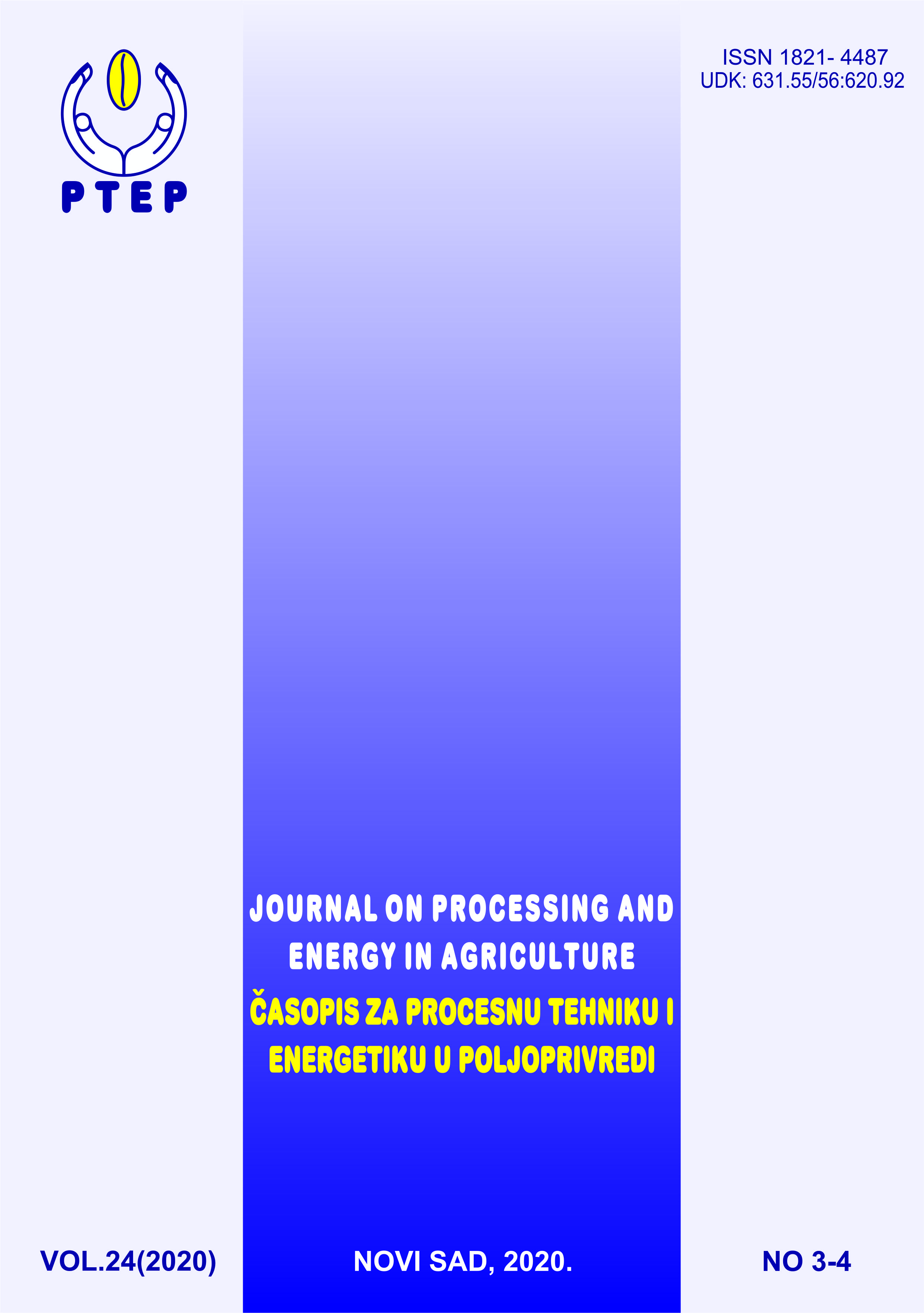ENERGETICS IN AGRICULTURE: CULTURAL PATTERN AS A STUMBLING BLOCK OR TAILWIND
Abstract
Observed in the last decade, Serbia cannot boast of a high level of competitiveness, whereby the determined values of the innovation and business sophistication factors indicate that Serbia, in this subindex of competitiveness, noticeably lags behind even the EU countries with the lowest values of this indicator. Holding the attitude that sustainable development is a synergistic effect and a common denominator of energetics, agriculture and ecology, and the state of resources related to energetics and agriculture in Serbia is noticeably better than their effectiveness, we will introduce culture into the development equation and try to see the reasons for this situation through the prism of the prevailing cultural pattern of Serbia. Competitiveness as a key assumption for improving well-being of any country and considering the way of its improvement is the main goal of this work.
References
Benedict, R. (1935). Patterns of Culture, Boston: Houghton, Mifflin Company.
Daglas, Meri, Ney (2003). Osobe koje nedostaju: kritika društvenih nauka. Samizdat B92.
Dobrijević, G. (2011). Poslovno komuniciranje i pregovaranje. Univerzitet Singidunum, Beograd.
Dragin, A. (2015). Kultura i komunikacija. Prirodno-matematički fakultet, Novi Sad.
Fej, B.(2002). Da li nas naša kultura ili društvo čine onim što jesmo. U: Divjak S. (ur.) Nacija, kultura i građanstvo, Službeni list Srbije, Beograd, 67-87.
Geertz, C. (1973). The Interpretation of Cultures, New York, Basic Books
Georgescu-Roegen, N. (1971). The Entropy Law and the Economic Process. Cambridge, MA: Harvard University Press.
Hercigonja, Z. (2017). Utjecaj kulture na međunarodno poslovanje. Zbornik radova Veleučilišta u Šibeniku, No. 3-4/2017, 171-180.
Hofstede G. 2001. Culture's Consequences: Comparing Values, Behaviors, Institutions, and Organizations across Nations. Thousand Oaks, CA: SAGE Publications.
Hofstede, G. (2003), Culture's Consequences: Comparing Values, Behaviors, Institutions and Organizations Across Nation, Thousand Oaks, CA: Sage.
Hofstede, G. (2010): “Cultures and Organizations – Software of the Mind“, McGraw Hill, New York.
Hougor A. K. (2018). Nordijska formula – zaštita životne sredine i ekonomskog rasta. Intervju ambasadora Danske, MAGAZIN ENERGETSKOG PORTALA, Broj 11, 14-22.
Matejić, V. (2009). Institucionalni sistem i efektivnost istraživačkog sistema Srbije: značaj za razvoj i tekuće stanje. Zbornik radova XVI naučnog skupa Tehnologija, kultura i razvoj, 6-14, Beograd.
Mojić, D. (2009). O mogućnostima i dometima empirijskih istraživanja culture i njihovom značaju za proučavanje organizacije. SOCIOLOGIJA, Vol. LI (2009), No. 2, 205-212.
Mojić, D. (2010). Kultura i organizacija: uticaj kulturnih pretpostavki, verovanja i vrednosti na organizacione strukture, sisteme i procese. Beograd: Čigoja štampa.
Mucchielli, A.; (1986): L'Identite, Presses Universitairs de France, Paris
Nikolić, Slavka, Bukurov, Maša, Erić, D., Stanković, Jelena. (2016). Mergers and Acquisitions in the reflection of soap bubbles. Tehnički Vjesnik = Technical Gazzette, Vol. 23, No. 6, ISSN: 1330-3651.
Nikolić, Slavka, Miladinović, S. (2012). Customized Consumer and Consumer Innovator in the Light of Social Capital and Dominant Cultural Pattern, International Conference on Mass Customization and Personalization in Central Europe MCP-CE, University of Novi Sad, 170-174.
Orboi Dora Manuela, Băneş Adrian, Petroman Cornelia (2017). Social issues on consumer attitudes towards organic food products. Journal on Processing and Energy in Agriculture, 21(4), 219-221.
Petković Mirjana, Janićijević, N., Bogićević Milikić, Biljana (2008). Organizacija: dizajn, ponašanje, ljudski resursi, promene. Centar za izdavačku delatnost Ekonomskog fakulteta, Beograd.
Šapić, S. (2009). Uticaj organizacione i nacionalne culture na prihvatanje organizacionih promena: istraživanje u srpskim preduzećima. SOCIOLOGIJA, Vol. LI (2009), No. 4, 399-422.
WEF (1). (2008-2009). Global Competitiveness Report. Geneva: World Economic Forum
WEF (2). (2016-2017). Global Competitiveness Report. Geneva: World Economic Forum
WEF (3). (2008-2017). Global Competitiveness Report. Geneva: World Economic Forum
WEF (4). (2018-2019). Global Competitiveness Report. Geneva: World Economic Forum

